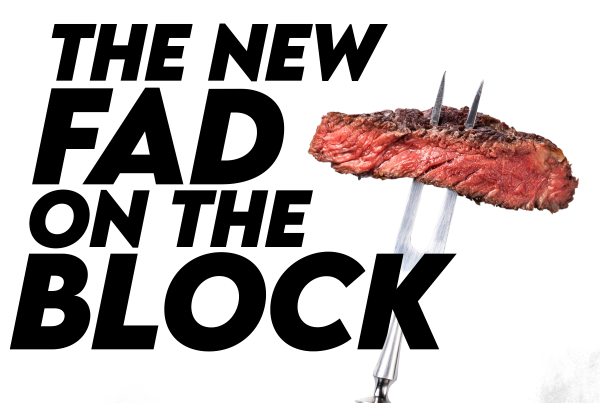Many Australian’s have been raised believing that breakfast is the most important meal of the day. This is a message communicated by parents, the media and the food industry marketing their products as the way to “kick start your day!” With busy work schedules or school drop-offs, breakfast can fall on the back burner. Is that so bad? Is breakfast really that essential to our health?
The bottom line is yes, breakfast is beneficial to health and research supports this idea. Here’s why…
Benefits of ‘Breaking-The-Fast’?
According to the research, those who skip breakfast are at greater risk of:
- Obesity
- Unfavourable blood lipid profiles
- Chronic diseases such as Diabetes and Coronary Heart Disease
- Lower intake of key nutrients essential for health including dietary fibre, folate, calcium, iron, Vitamin A and C and potassium. (Uzhova et al., 2018)
Those who do eat breakfast have been shown to have an overall diet quality. (Uzhova et al., 2018) This may be due to breakfast eating being more ‘health-conscious’ and therefore make better food choices. Those who skip breakfast may find themselves hungrier later in the day, leading to snacking on high energy, nutrient-poor foods or eating a larger amount at lunch or dinner. This, in turn, could contribute to weight gain and chronic disease.
Breakfast can be beneficial for a number of reasons, including:
- Maintaining a healthy weight: research shows that those who eat breakfast are more likely to achieve and maintain a healthy weight
- Meeting nutrient targets: including a nutritious breakfast can be a great way to provide the necessary energy and nutrients needed to get you through your day, and
- Improving alertness, concentration, mental performance, mood and memory: by providing your body with the energy to take on your day! (Australia, Unknown)
When Should We Eat Breakfast?
Whilst there is no hard fast rule around when you should be consuming breakfast, aim to eat within two hours of waking up as a general guide. If you do not wake up hungry, you may opt for a light breakfast or replace your usual morning snack with a later breakfast.
Okay so, now that you know why and when you should eat breakfast, the next question we need to answer is what breakfast choices are best?
Nutritious Breakfast Ideas
As we stated earlier, breakfast can provide several essential nutrients including fibre for gut health, calcium for strong bones and protein to promote muscle growth and repair, good immune function and to help keep us fuller for longer! So, what kind of breakfasts get the dietitian tick of approval?
Here are some of our favourite brekkie ideas:
- Vegetarian omelette made with eggs, reduced-fat cheese and your favourite veggies served with a piece of wholegrain toast
- Wholegrain cereal such as Freedom Food’s Active Balance, Guardian, Jordan’s Low Sugar Granola or Vita Brits served with reduced-fat milk and fruit
- Porridge made with rolled oats and reduced-fat milk served with fruit
- Low-fat yoghurt served with fresh fruit and toppings such as natural muesli, nuts and/or seeds
- Wholegrain toast topped with ¼ avocado, tomato and poached eggs, salt-reduced peanut butter and banana or even salt-reduced baked beans!
If you are short for time, here are some quick on the go breakfast ideas:
- Tub of yoghurt and a piece of fruit
- Low fat milk-based coffee and a piece of fruit
- Keep a wholegrain cereal at home or the office and pair with milk or yoghurt
- Baked beans or boiled eggs to eat on the run!
You may also prepare breakfast for the week ahead if you are often pushed for time. Examples which can be stored in the fridge for 2-3 days and/or freezer include:
- Yoghurt with fruit, oats, nuts +/- seeds with a sprinkle of cinnamon
- Mini vegetable quiches
- Zucchini and vegetable muffins
- Vegetable frittata
- Fruit smoothie made with low-fat milk, 1 cup of fruit and ¼ cup oats
- Overnight oats paired with mixed berries
- Boil eggs up in advance to pair with toast.
Although there are many ‘good’ breakfast options, there are many poor choices available in our supermarket which are typically high in salt, sugar and fat which can have negative impacts on our health and waistlines. Examples include pastries, high sugar cereals/muesli and processed meats such as bacon and sausages. Look for products which meet the following criteria:
- Sugar content less than 15g/100g (OR < 20g/100g if contains dried fruit)
- Total fat less than 10g/100g
- Saturated fat less than 3g/100g
- Sodium less than 120mg/100mg (ideal) OR < 400mg/100g (okay).
Ultimately, breakfast is an important way to meet daily nutrient targets and to provide us with the energy needed to take on our day. This may mean having a late breakfast if you don’t wake up hungry or are pushed for time in the morning. Something is better than nothing! Even if it is a light brekkie! Share some of your favourite breaky ideas with us by using the hashtag #FYLBreakfast!
If you are keen to learn more about how you can improve your nutrition with one of our awesome dietitian’s, visit our website today!







